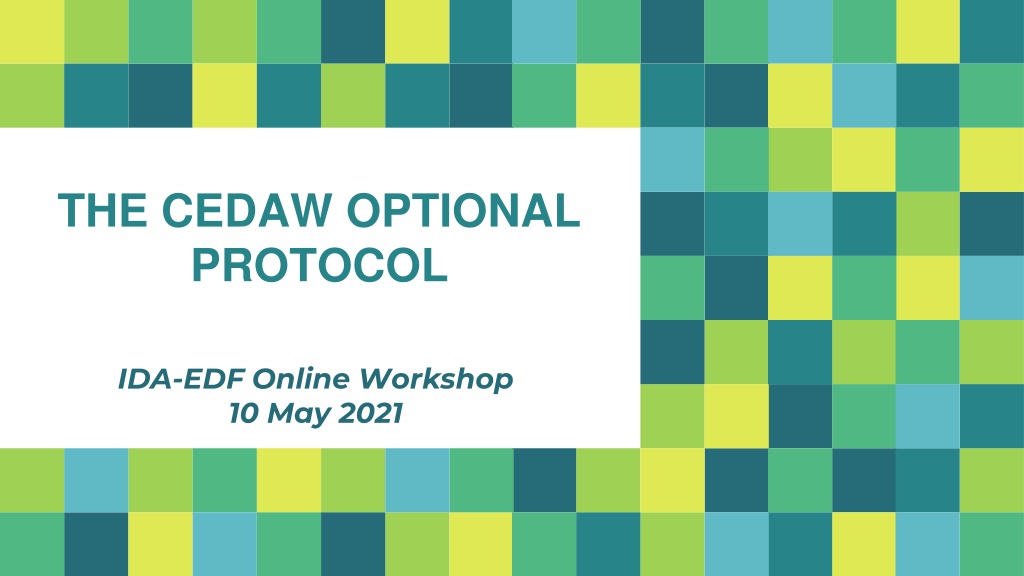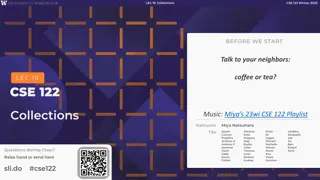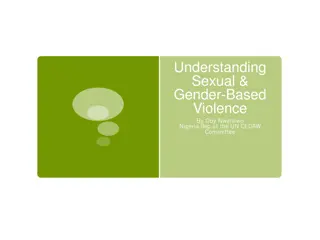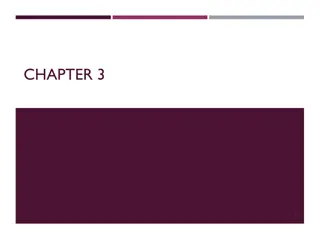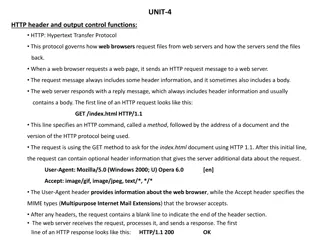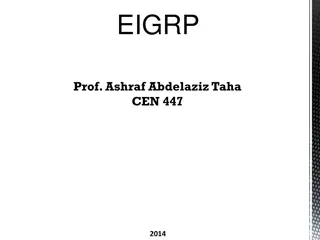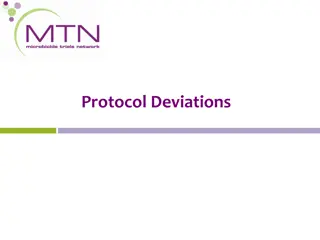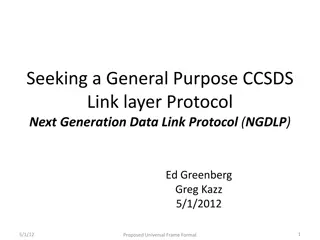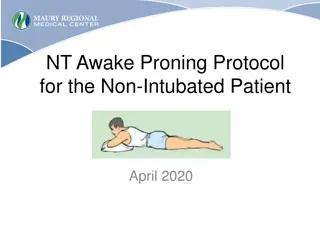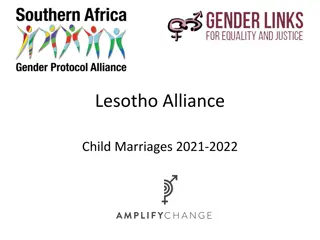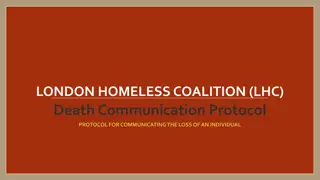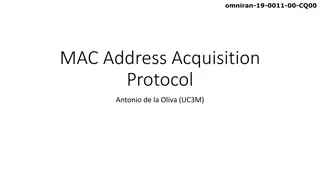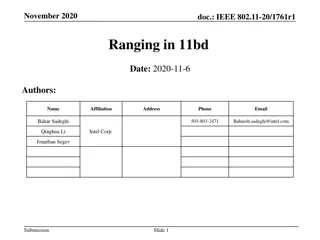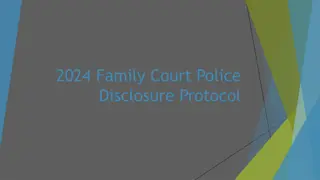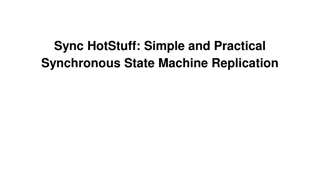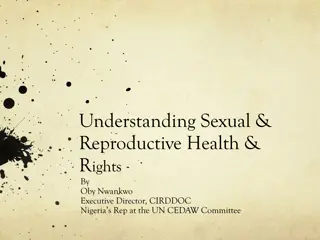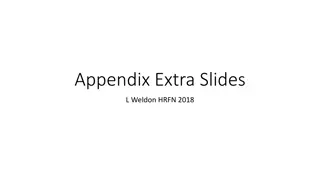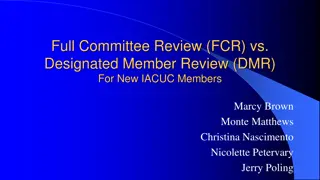Understanding the CEDAW Optional Protocol
The CEDAW Optional Protocol is a separate treaty from the UN Convention on the Elimination of Discrimination Against Women (CEDAW). It enhances CEDAW by allowing individuals to bring complaints to the Committee for violations when national remedies fail. The Protocol establishes procedures for communications and inquiries to address grave and systematic violations of women's rights. It applies to all rights under CEDAW and other international human rights laws related to women, holding states accountable for violations.
Download Presentation

Please find below an Image/Link to download the presentation.
The content on the website is provided AS IS for your information and personal use only. It may not be sold, licensed, or shared on other websites without obtaining consent from the author. Download presentation by click this link. If you encounter any issues during the download, it is possible that the publisher has removed the file from their server.
E N D
Presentation Transcript
THE CEDAW OPTIONAL PROTOCOL IDA-EDF Online Workshop 10 May 2021
What is the Optional Protocol (OP)? 2
A treaty separate from the UN Convention on the Elimination Discrimination Against Women (CEDAW ) The OP entered into force in Dec 2000. Open to ratification by States already party to CEDAW- requires separate ratification- 114 State parties to date. Tool for enhancing CEDAW and ensuring access to justice to women s rights Purely procedural in nature; does not create new rights of All Forms of implementation of 3
Establishes two procedures: communications procedure: permits individuals to bring complaints before Committee to violations when they have been unable to get remedies at the national level; inquiry procedure: permits Committee to initiate an investigation into grave or systematic or violations seek redress for grave & systematic 4
CHOICE OF FORUM Communication (OP Ratified?) Inquiry Periodic Report Others? (OP Ratified? Agreed to Inquiry?) Domestic Remedies Threshold Pre-Session Grave ? Substantive Procedural Systematic? G & S? State Report Reliable information? Standing Victim? Shadow Report Community Support? Respondents? Follow up Report Victims/ Witnesses/ Experts? Claim? Shadow Report Remedy? Remedy?
Applies to all rights in CEDAW, as well as other rights under international human rights law relating to women. Procedures must be directed against a State. Only the State is responsible under international law obligations under CEDAW, but it may be held accountable for failure to prevent & respond to violations by non-state actors. for breaches of
Procedures apply only to violations that occurred after OP effective ( entered into force ) for the State concerned, unless violations that occurred earlier are continuing or the harm arising from continuing. State Parties are permitted to opt-out of the inquiry procedure. No opt-out of procedure No reservations permitted became legally the violation is communications 8
Key Case: Rights of Women with Disabilities 9
A.T. v Hungary, 2005 First case concerning domestic violence submitted and reviewed by the Committee A.T. suffered severe domestic violence from her husband, did not receive adequate legal protection and could not go to a shelter as none were equipped to meet the needs of her child with disabilities. The Committee recommended that Hungary: Take immediate and effective measures to guarantee the physical and mental integrity of A. T. and her family Provide systemic remedies including, introducing a specific law prohibiting domestic violence against women, which would provide for protection and exclusion orders as well as support services, including shelters. 10
R.P.B v Philippines, 2014 R.P.B is a deaf and mute woman who was 17 years old when she was raped by her neighbour. The trial court in the Philippines acquitted the accused based on gender stereotypes and myths, did not consider her vulnerability as a deaf girl or provide reasonable accommodation on this basis, such as sign language interpreting; and took 5 years to reach a decision. The Committee recommended that Philippines: R.P.B be provided with reparation, counselling and barrier- free education with interpreting review its rape law to place lack of consent at its centre by removing any requirement that sexual assault be committed by force or violence and any requirement of proof of penetration and ensure the free and adequate assistance of interpreters at all stages of legal proceedings, whenever needed 11
Ciobanu v Moldova, 2019 Natalia Ciobanu resigned from her job to care for her child with disabilities as the only alternative available to her was institutionalisation. The period she spent in child care was eventually excluded in the calculation of her social security pension. The Committee recommended that Moldova: Recalculate author s social insurance pension; award compensation for denial of right to social insurance; provide moral damages; reimburse author for legal costs Remedy situation of women who suffered similar violations & ensure availability of adequate support services to allow mothers of severely disabled children to remain in employment 12
